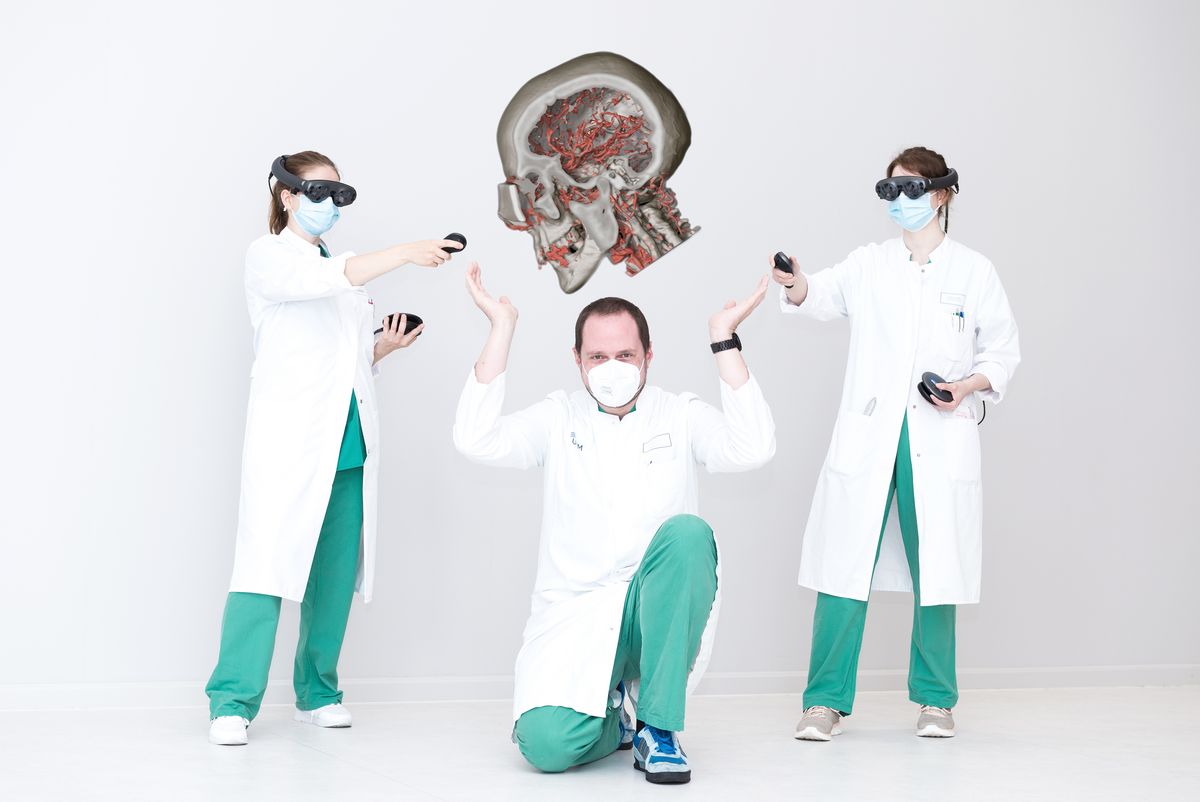technology offer "AVATAR"
Augmented and Virtual Reality Applications in Teaching, clinics and Research
Visual biomedical data has become a key feature for diagnostic, therapeutic and education purposes in modern medicine. State-of-the-art computer vision systems process and analyse this data to extract valuable information and to provide appropriate visualisation strategies.
In this context, Virtual Reality (VR) and Augmented Reality (AR) devices have become particularly important since they offer immersive data representations and advanced interaction metaphors. Such techniques are well known for entertainment and gaming applications as well as industrial construction planning. Its applicability for daily clinical practice and biomedical image understanding is however yet in its infancy.
Therefore, we aim to study and implement innovative VR and AR strategies for novel biomedical computer vision applications. This interdisciplinary research requires a close collaboration between medical and computer sciences in order to unleash the tremendous potential of VR and AR systems for clinical purposes.
goals
- to determine the efficient usage of VR and AR devices for biomedical and clinical purposes
- the development of novel computer vision and machine learning algorithms to assess complex and high-dimensional medical image data
- the identification of innovative use-cases to apply VR and AR in diagnostic and therapeutic purposes
- to facilitate and support the usage of VR and AR system in medical education
Our ultimate goal is to bridge the gap between rapidly emerging new vision technologies and their applicability for biomedical practice and research.
your participation
If you are interested in a collaboration (e.g. clinical study, medical thesis, bachelor- or master- thesis) in this new and fast expanding field of medicine and computer science, please do not hesitate to contact us via avatar@uni-muenster.de!

(© WWU/L. Jeremies)

